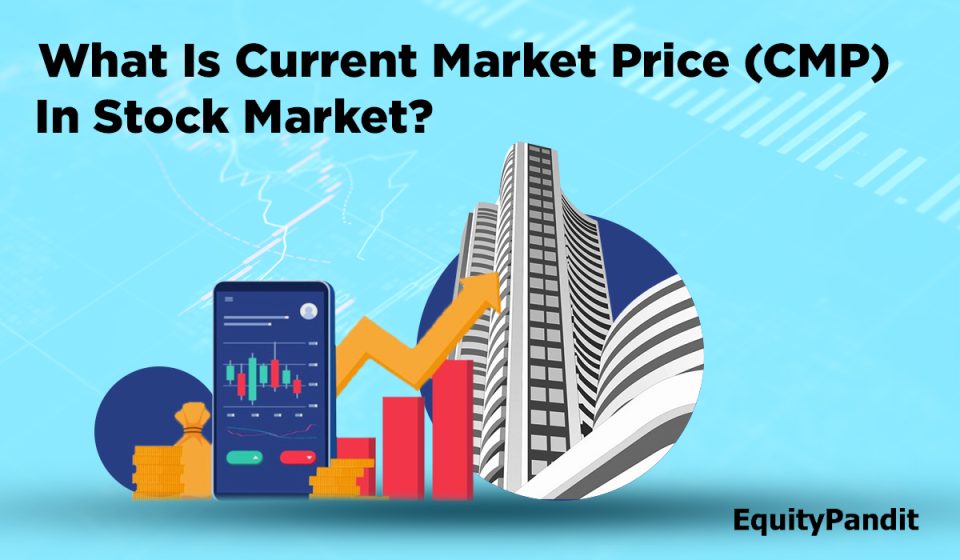In the stock market, every second matters, and CMP plays a crucial role in shaping investment decisions. But what exactly is CMP, and why does it matter so much? Let’s dive in and explore its importance in smart investing!
Understanding Current Market Price (CMP)
CMP is the Current Market Price of a stock. The price is constantly changing, even changing by the second at times. Even when markets are closed, news and public sentiment can influence a stock’s opening price, so the price can jump up or down. Think of the journey of a stock as a graph: CMP is just the last point on that graph showing its current value.
This is critical to investors and traders since it is the actual price of the stock at any particular point in time. When it is compared with the price from a few moments before, combined with the knowledge obtained from fundamental and technical analysis, it becomes possible to predict intelligently where the CMP would be in the next 10 minutes, 10 days, or even 10 weeks. In other words, the CMP is just a reflection of a share’s price at a particular moment. As time moves forward, a new CMP takes its place.
Understanding CMP helps in choosing the right order type: market orders for quick execution, stop loss orders to limit risks, and limit orders for controlling trade prices.
For instance, CMP or Current Market Price is helpful when placing a market order, where you choose the quantity but not the price. The order gets executed at the stock’s current price. However, in fast-moving markets, the final price may differ due to delays in price updates.
CMP also shows the real-time value of your holdings, helping you monitor your portfolio and make better decisions about adjusting your investments.
As time passes, the CMP becomes the Last Traded Price (LTP), representing the stock’s most recent transaction.
Understanding Last Traded Price (LTP)
LTP or Last Traded Price is the price at which a stock was most recently bought or sold. Like the CMP, it changes with every trade. For example, when you buy a stock, the price you paid becomes the LTP, but as trades continue, the LTP changes every moment.
Although LTP and CMP may sound similar, they aren’t the same thing.
Differences between LTP and CMP
The CMP and LTP may seem similar, but there is a key difference between them. CMP represents the current price displayed on your screen, while LTP is the price at which the last trade occurred.
For example, if a stock is listed at 100, but the LTP shows 99.8, the price you see is the CMP. After you make a purchase, the price you paid becomes the LTP. The CMP can vary slightly for each investor, while the general CMP is an average based on these variations.
Bottomline
Now that you understand the full form of CMP and its importance, remember that it’s a key metric for both traders and investors. Always analyze the current market price before making any decisions, and be mindful of market volatility. This will help you make informed choices that align with your trading and investment goals.
Some Frequently Asked Questions (FAQs)
What does CMP stand for in the stock market?
CMP stands for Current Market Price. It is the price of a stock at any given moment in time and constantly changes as trades happen.
How is CMP different from LTP?
CMP is the price displayed on your screen at any given time, while LTP (Last Traded Price) is the price at which the most recent trade was executed. The two can differ slightly.
How does CMP help in making trading decisions?
CMP helps you understand the real-time value of a stock. It aids in deciding which type of order to place (market, stop loss, or limit orders) and helps assess the value of your holdings for making informed investment decisions.
Can the CMP change even when the market is closed?
Yes, the CMP can change even when the market is closed, as news and public sentiment can influence a stock’s opening price when the market reopens.
Unlock profitable opportunities every day! Unicorn Signals provides actionable intraday trading signals for stocks and futures. Don’t miss out – download Unicorn Signals and start winning now!
 Live
Live

